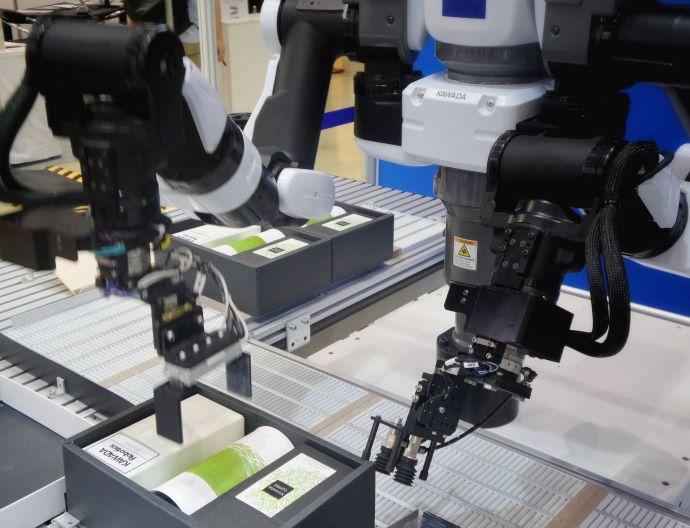The collaborative research and development competition sought to identify and support digital innovations to improve the sustainability of manufacturing processes, resulting in either reduced material or energy consumption. Projects applying for funding were required to show an innovative development and application of data or digital technology that could help optimise material usage, and reduce, reuse or separate waste materials, or lower energy consumption to increase sustainability throughout an area of production.
The INSPIRE project, based in Milton in Cambridgeshire and led by PragmatIC Semiconductor, is looking to tackle the pollution within the electronics industry by building a new high-volume manufacturing facility. Once complete, will be the UK's first 300mm semiconductor lab, used to develop new methodologies that will support the aim to reduce annual carbon emissions by over 6,000,000kg CO2.
Meanwhile, Photocentric’s Peterborough-based LEAD Factory will establish a new method of digitally manufacturing parts in scale by 3D printing. Through its autonomous process, it will bring a range of energy, productivity, waste reduction and delivery time benefits for companies in the UK and overseas.
The third project, run by Raynor Foods from Chelmsford in Essex, focuses on the use of digital twins in food manufacturing and is looking to begin in January 2023. The project aims to showcase how real-time operational decisions can be made that will reduce emissions, improve resource flow and boost manufacturing productivity.
Industry Minister Jackie Doyle-Price said:
“Creating and adopting the latest in digital technology will be key to the continued success of our manufacturing sector. It is now critical that companies are using technology such as AI and virtual reality to maximise their potential by driving up their energy efficiency and productivity.
The cutting-edge projects based in East Anglia that have been awarded funding today are testament to the region’s wonderful business community. From world leading 3D printing, to boosting the efficiency of semiconductor manufacturing, these are solutions to key industrial challenges that will boost growth and jobs.”
Paul Holt, Managing Director of Photocentric Ltd, said:
“With successful completion of the LEAD project we intend to not influence existing Additive Manufacturing, but change the way the world manufactures, providing high quality, low cost, digitally made parts in large volumes without human involvement for the first time. This is tangible, of huge potential benefit to UK manufacturers and incredibly exciting to the partners.”
Scott White, CEO of PragmatIC Semiconductor, said:
“We are delighted to receive this funding provided by the Made Smarter Innovation Challenge at UK Research and Innovation. We have already developed semiconductor devices that are significantly more cost-effective and sustainable than traditional silicon chips; the INSPIRE project will now accelerate further reduction in environmental impact.”
Chris Needham, Innovation Lead in the Made Smarter Innovation challenge, said:
“Effective digital technologies can have a substantial impact on the manufacturing sector, bringing outdated, inefficient and unproductive products and processes up the standards needed for a net zero industry of the future. It’s clear from the wide range of applications we received just how far waste and energy issues extend across different industries. The successful applicants clearly demonstrated real innovation and showed just how the right use of data and technology can make a significant difference to businesses. We now look forward to working alongside them to deliver successful outcomes.”
There are still further opportunities to get involved with the Made Smarter Innovation challenge. The MSI Digital Supply Chain Innovation Hub is open here for expressions of interest to run supply chain test beds. The next collaborative R&D funding opportunity will also be launching in January 2023, offering a combined £6m for industrial readiness robotics innovation projects within manufacturing operations.
More information on the MSI challenge can be found here.
Image: possessed-photography, unsplash



